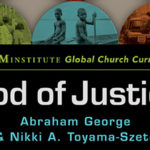This LifeWay Bible Studies for Life lesson for Jan. 20 focuses on Obadiah 1-4, 10-15, 17-18, 21.
A wise pastor, teaching other pastors, once told the story of a young man who went to the pulpit completely sure of himself. His sermon fell apart, and he left the pulpit embarrassed and humiliated. Someone made the comment, “If he had gone to the pulpit the way he came down from the pulpit, he would have come down the way he went to the pulpit.”
Arrogance always is a telltale predictor of stumbling. Being aware of our own arrogance before we stumble is one of the greatest challenges of being a follower of Jesus.
The lesson of Obadiah appears self-evident. Those who choose to believe their wisdom, strength and ability are self-contained tend to discover such an attitude also carries its own built-in self-destruction.
It’s dangerous for one human being to pass judgment on another. We rarely know the whole story of another person’s problems or needs that drive them to behave in ways that seem unseemly to us. Certainly, there are times when we should cry for justice on a national level. Most of the time, the greatest question we must ask and answer is whether or not we are exercising justice in the ways we deal with others. At least that is the place we should begin our search for justice.
Obadiah was pronouncing judgment on almost a global scale. That is what the prophets did and did well. He simply was pronouncing what would become of those who felt the center of the universe began with them.
The Comanche ruled the Western Plains for centuries until the late 1800s. Even the Apache gave them wide berth. They were a brutal people who cared nothing for the needs or lives of anyone but their own people. They raided and killed, raped, brutalized and kidnapped without restraint in the world they ruled.
Their brutality was rooted in their perception of themselves in relationship to everyone else. The word “Comanche” meant “the people.” One elderly Comanche warrior, interviewed in the early 20th century, said they never thought a great deal about where they came from or why they were here. They just knew they were “the people.”
If we have no sense of where we came from or who we came from, and we have no sense of why we are here except for what we want, we become a law unto ourselves. In one way or another, we brutalize others or take advantage of them because we believe we deserve what they have and we want.
Sign up for our weekly edition and get all our headlines in your inbox on Thursdays
There are two ways to examine the teachings of Obadiah. One way is to read his words of judgment with a deep sense of satisfaction. We can easily gloat about how God is going to deal with those who treat us or others in ways we perceive to be unrighteous. “They will get what they deserve!” we cry.
Perhaps a healthier way to read the teachings of Obadiah is to look at each verse and ask ourselves whether we are those who deserve the judgment of God for the way we have treated others. These are words we should ponder: “The day of the Lord is near for all nations. As you have done, it will be done to you; your deeds will return upon your own head” (Obadiah 1:15).
It always is easy to think of judgment as something someone else deserves. The judgment of God always should call us to think of our own souls and how we can find ways of exercising justice in the small piece of this world we manage.













We seek to connect God’s story and God’s people around the world. To learn more about God’s story, click here.
Send comments and feedback to Eric Black, our editor. For comments to be published, please specify “letter to the editor.” Maximum length for publication is 300 words.